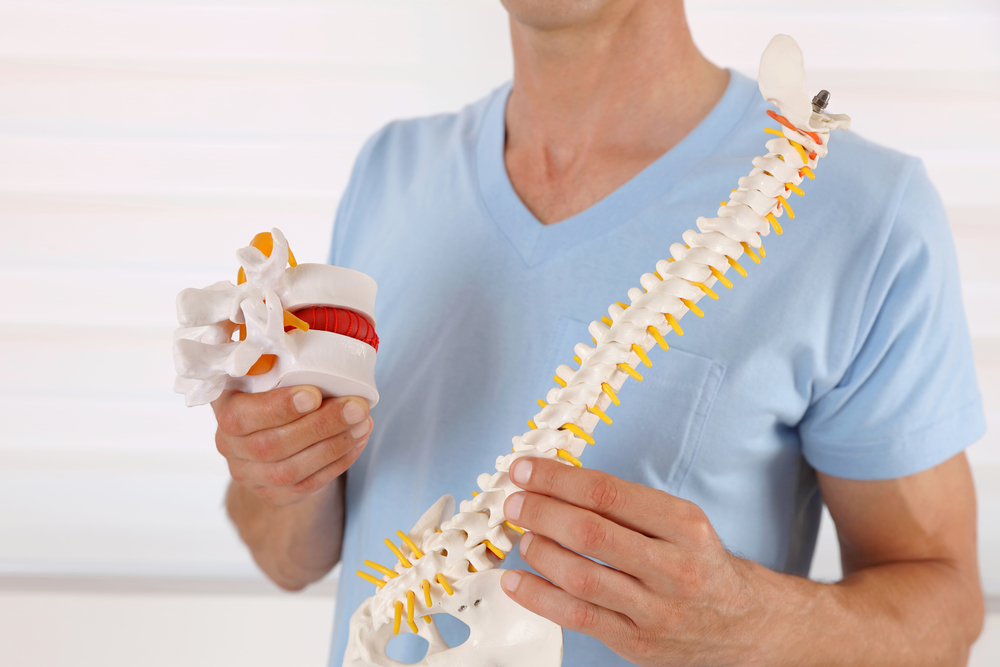
Spinal stenosis can cause discomfort, pain, and limited mobility, significantly impacting quality of life. Many patients diagnosed with spinal stenosis may think surgery is the only effective option. However, nonsurgical spinal decompression offers an alternative, targeting pain and restoring movement without the need for invasive procedures.
Understanding Spinal Stenosis and Its Impact
Spinal stenosis typically occurs in the neck (cervical spine) or lower back (lumbar spine), narrowing the spaces where nerves travel, often resulting in pain, numbness, and weakness. As the spine compresses, it increases pressure on the spinal discs, which cushion the vertebrae and protect nerves. When spinal stenosis worsens, these discs can herniate or bulge, worsening symptoms by further compressing nerve roots.
Common symptoms of spinal stenosis include:
• Pain or cramping in the legs and arms
• Numbness or weakness, particularly in the limbs
• Difficulty standing or walking for extended periods
Given the progressive nature of spinal stenosis, finding an effective treatment that doesn’t require surgery is essential for many people looking to restore comfort and mobility.
What Is Nonsurgical Spinal Decompression?
Nonsurgical spinal decompression is a cutting-edge, non-invasive therapy designed to relieve pressure on spinal discs and surrounding nerves. Through a series of carefully controlled mechanical stretches, spinal decompression creates negative pressure within the spinal discs. This negative pressure gently draws bulging or herniated discs back into position, relieving pressure on compressed nerves and easing pain.
The decompression process happens gradually, allowing healing fluids, oxygen, and nutrients to re-enter the affected discs, supporting their natural healing process. This therapy can significantly reduce discomfort associated with spinal stenosis without the need for invasive interventions or long recovery times.
How Spinal Decompression Relieves Spinal Stenosis Symptoms
Nonsurgical spinal decompression specifically addresses the underlying causes of spinal stenosis by:
• Reducing Pressure on Compressed Nerves: When spinal discs become compressed due to narrowing, they push on nearby nerves, causing pain and mobility issues. By creating negative pressure, spinal decompression relieves the strain on these nerves, which can reduce pain, numbness, and tingling in affected areas.
• Repositioning Herniated or Bulging Discs: Spinal stenosis often leads to bulging or herniated discs. The gentle, targeted stretching during decompression helps guide discs back into place, easing pressure on nerve roots.
• Improving Nutrient Flow to Discs: Decompression encourages blood flow, helping nutrients, water, and oxygen flow back into the discs. This helps restore flexibility to spinal discs and supports healing, reducing the risk of further injury and deterioration.
• Relieving Inflammation and Swelling: By decreasing the amount of pressure on the affected areas, spinal decompression helps reduce inflammation around the spinal discs, easing discomfort and supporting greater movement.
Who Can Benefit from Nonsurgical Spinal Decompression?
Nonsurgical spinal decompression may be a suitable option for those with mild to moderate spinal stenosis who have not responded to other forms of non-invasive treatment. Ideal candidates are those looking to avoid the risks and recovery time associated with surgery. This therapy can also benefit those with other conditions affecting the spine, such as:
• Degenerative disc disease
• Herniated or bulging discs
• Sciatica or nerve pain
However, it’s essential to consult with a specialist to determine if nonsurgical spinal decompression is the right fit. Certain conditions, like fractures or advanced osteoporosis, may limit eligibility for this therapy.
Schedule Your Consultation with Disc Centers of America Today
For those grappling with the challenges of spinal stenosis, nonsurgical spinal decompression can provide an effective, non-invasive option to manage pain and enhance mobility. With no incisions or extended recovery times, this therapy offers a path to relief without the risks of surgical intervention. By addressing the underlying pressure within the spine, spinal decompression helps restore the balance and support your spine needs for lasting comfort.
To learn more about how nonsurgical spinal decompression can help with spinal stenosis, reach out to Disc Centers of America In Kansas City to explore your options and take the first step toward relief. Visit our office in Kansas City, Missouri, or call (816) 339-5900 to schedule a consultation today.









